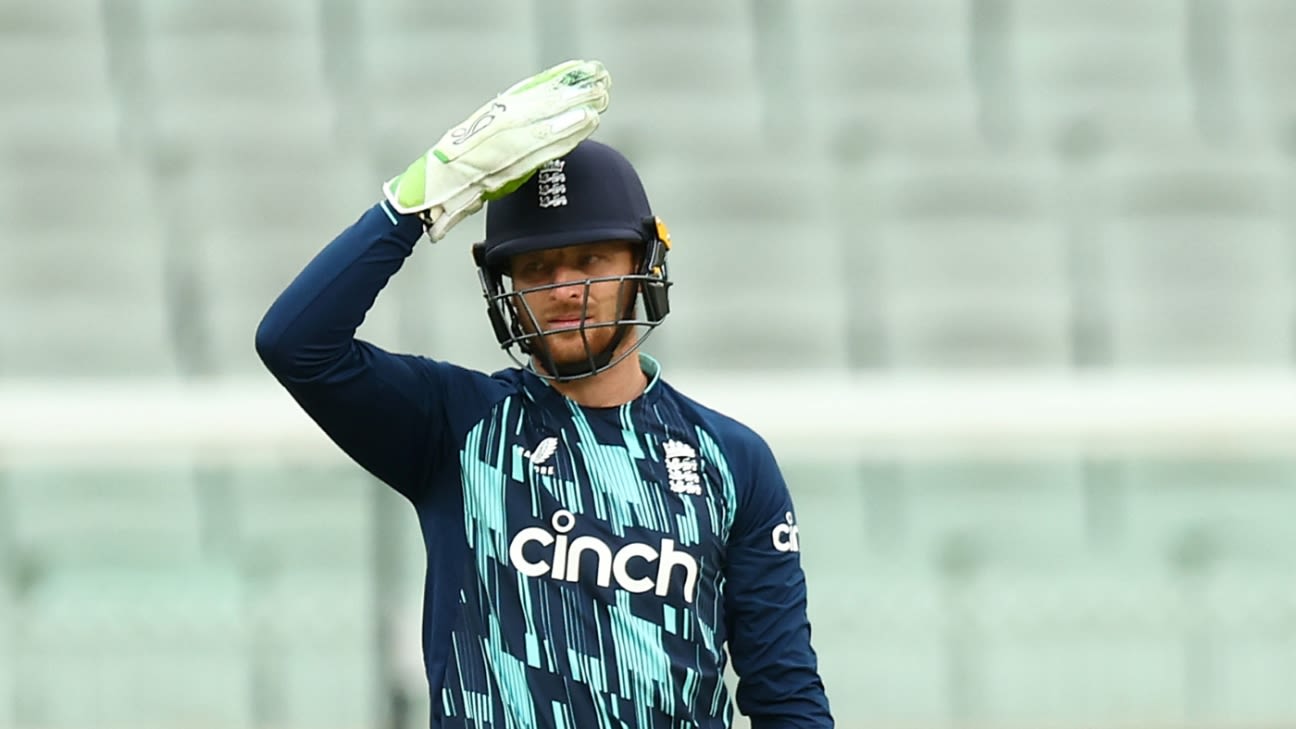The series, which was not part of the ODI Super League, was originally due to help England’s preparations for their defence of the 50-over World Cup in India, following on from three T20Is which would serve as the curtain-raiser to the Australian summer.
But after the T20 World Cup in Australia was postponed from 2020 to 2022 due to Covid, the tour was split in two, and the T20I series was a warm-up for that tournament. With the 2023 ODI World Cup in India postponed from February-March to October-November, the ODI series became an afterthought and was effectively fulfilled due to contractual obligations with broadcasters.
The series started only four days after England lifted the T20 World Cup and with their Test squad in Abu Dhabi preparing for a three-match series against Pakistan, England fielded a team that was barely half-strength. They lost all three ODIs and were thrashed by a record margin, 221 runs, in Tuesday’s dead-rubber at the MCG.
“It was always going to be a tough series for us, coming off the back of the World Cup,” Buttler said, speaking to the BBC. “It’s just been a few games too far and fair play to Australia, they have outplayed us. It’s not part of the ranking system [Super League] so there’s not as much on the games as there would be.
“Any time England play Australia you want to put up good performances, but it’s just been hard. I’m not fussed at all about the results, to be honest. We’ve got exactly what we wanted from [the tour to] Australia.”
Steve Harmison, the former England fast bowler, described the series as “meaningless cricket, played in a meaningless way” while working as a pundit for BT Sport, and Buttler implored administrators to “take care” of the global game.
“Just to take care of it, find a way to keep it all relevant,” Buttler said when asked for his message to cricket boards. “Maybe the ICC tournaments should be a little bit more spread out: it gives you a little bit more time to prepare and it makes them probably a bit more special when they do come around as well.
“The landscape of cricket has changed dramatically over the last few years, and we’re in a different time. Lots of people are talking about how you keep bilateral cricket relevant and I think this series is a good example of how probably not to do it.
“I think one of the biggest things is having overlapping series. We’ve got a group of players preparing for a Test series that shortly starts in Pakistan and we’ve got a team playing here at the same time. In the new year, a Test match [in New Zealand] finishes one day, and an ODI series starts the very next day in Bangladesh.
“I feel a bit for the players, to be honest – the ones who are young and coming into the game at the moment. You want to play all formats and I don’t think the schedule really gives you that chance at the minute.”
